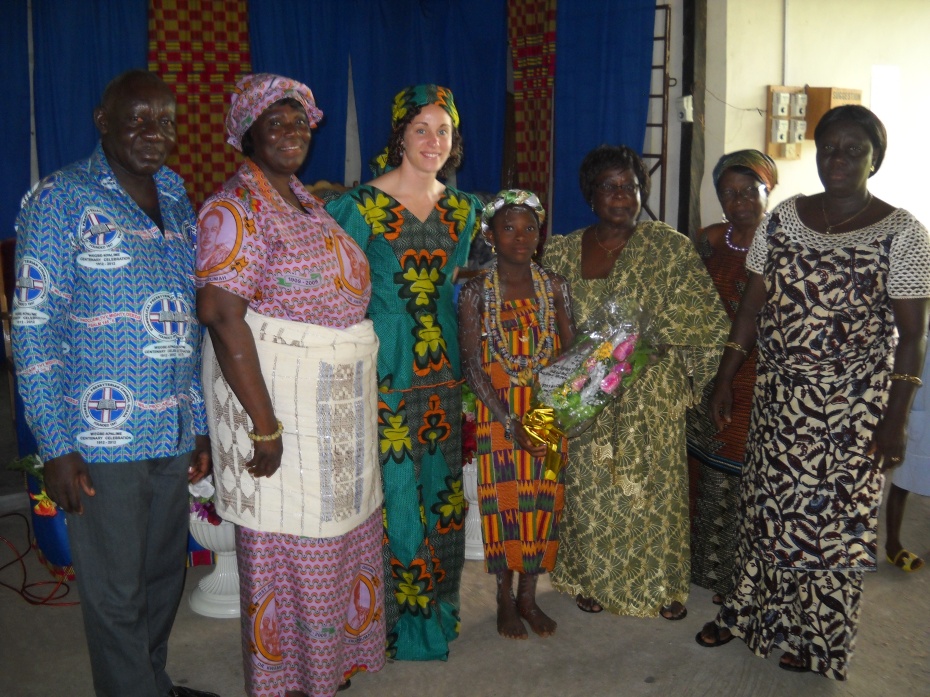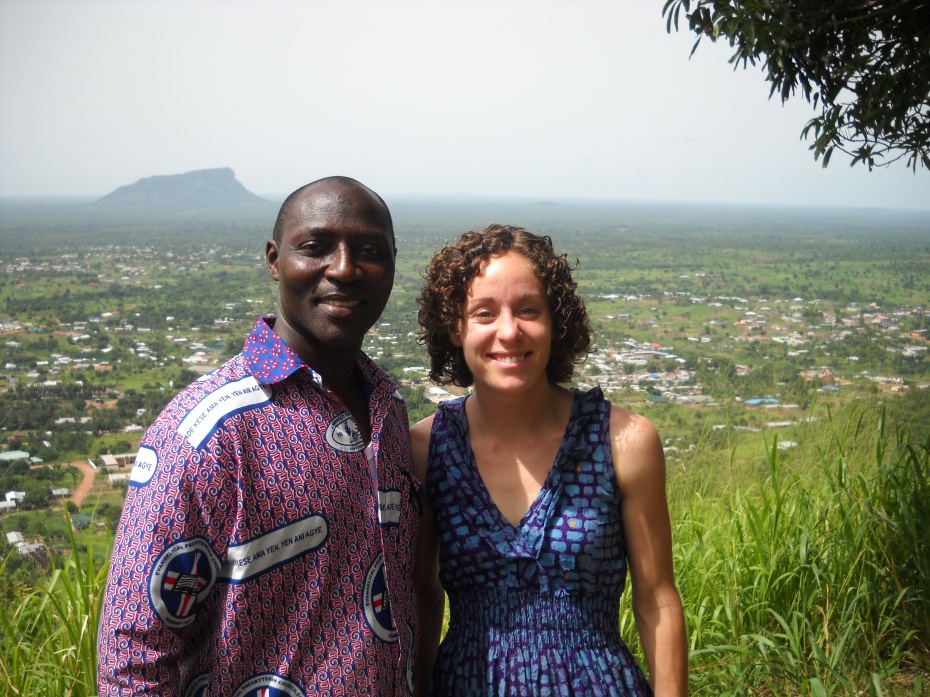The more I continue to talk to pastors here about what church partnerships with foreign churches look like (which to me resemble something far from a true “partnership” most times) and the more I hear about how the church and other institutions continue to be dependent on foreign aid, the more conflicted I become. On top of this I have been reading a book called “Dead Aid” written by Dambisa Moyo. The author is originally from Zambia and her case that foreign aid to Africa is not working and actually harmful to the development of Africa is extremely compelling. In the past 60 years, over 1 trillion US dollars have poured into Africa but for most countries africa, poverty has increased. There are many many reasons Moyo proposes as to why aid does not work- one is that often it gets poor countries into a cycle of debt they cannot get out of. Others reasons are: geographical, historical, cultural, tribal and institutional. Further, corrupt governments often scoop up aid for themselves and it never contributes to the development of a country.
It’s time to start living out the belief: “We are all one in Christ”
Her book talks about a lot of complicated economic things, some more than I can really grasp in my brief reading of the book. Many of her solutions involve big reforms in international relations. However, I think the issues and concerns she raises are especially pertinent for individual churches, presbyteries and any church of any denomination for that matter. I think her concerns are ones that the churches of the Western world need to stop and think about. I think with the short term mission model that churches often use, especially with foreign missions, that the work of western churches can often do more long-term harm then we realize. Again, it might feel good to take a bunch of old shoes and clothes to another country or to raise a bunch of money and send it over seas, but so often we don’t consider the real effects. Take this story from Moyo’s book as an example:
“There’s a mosquito net maker in Africa. He manufactures around 500 nets a week. He employs 10 people, who (as with many African countries) have to support upwards of fifteen relatives. However hard they work, they can’t make enough nets to combat the malaria-carrying mosquito. Enter vociferous Hollywood movie star who rallies the masses, and goads Western governments to collect and send 100,000 mosquito nets to the afflicted region, at a cost of one million dollars. The nets arrive, the nets are distributed, and a ‘good’ deed is done. With the market flooded with foreign nets, however, our mosquito net marker is promptly put out of business. His ten workers can no longer support their 150 dependants (who are now forced to depend on handouts) and one mustn’t forget that in a maximum of five years the majority of the imported nets will be torn, damages and of no further use” (44).
She lists one positive alternative that has started with food aid– instead of shipping in foreign food, some have begun to invest in and purchase food from local farmers in the country and distribute the food to the needy. That way, local farmers are not put out of business and actually supported in the process of giving food to those who need it most.
Back in 1999 a student at (then) Union Theological Seminary and PSCE wrote a thesis about partnership in Christian mission with the context of mainline churches in Ghana in mind. He writes about the “missionary moratorium” of the 1970s that was called for by a Kenyan Presbyterian which asked for all missionaries to withdraw from Africa for at least five years. This was so younger churches in the third world could be liberated from the era of colonization and such that had been done by westerners in Africa. The All African Council of churches called for a removal of missionaries and funds, aiming to get rid of the church’s dependent state on foreign funds. The Presbyterian churches in Ghana were independent prior to the moratorium, the Evangelical Presbyterian Church in 1930 and the Presbyterian Church of Ghana in 1960. However, this does not mean that foreign missionary bodies and churches cease to be involved financially and personnel wise.
Dzakpasu, the author of this thesis, writes that because of how the relationship began between western churches and churches in Africa, most church partnerships are paternalistic in nature, meaning churches are not financially independent from the missionary society (20).
The GOAL he says is for African churches to become self-sufficient so that REAL EQUAL partnership can be realized. This is my prayer for the churches here and my prayer for our western churches too, that we might engage with our brothers and sisters from other churches in ways that do not contribute to this paternal type of relationship but rather aim to establish a real, equal partnership. Thankfully this is what several of my host pastors perceive me to be doing and what I feel like I am trying to do, establish mutual relationships with pastors here and further the relationship that exists with UPSem. I have been honored that this is how many have perceived my visit.
It is obvious that the church all over the world is still struggling with this.
In my time here with the Evangelical Presbyterian Church in Ho, Ghana I have been blessed to witness and hear about the visions and dreams ministers have for their own church here. The EP Church has already been responsible for doing holistic ministry in their communities by setting up health clinics, schools, ecumenical gatherings and ministries for youth and for children who live on the streets. This is in addition of course to the new churches they have planted and all of the prayer and music groups that go on within the church. One pastor started a center to take care of the aging population and his vision has grown into around 90 centers around Ghana that care for the elderly population. He still has many more dreams though. One of his dreams is for more church members to be mobilized to serve their communities, for groups like the women’s bible study or the youth group (which have turned into mostly singing groups) to turn outward and serve others in their community. The vision, the passion and the people with gifts are here…yet many churches and their social ministries continue to be dependent on foreign money.
What if instead of a US church sending over money to support the street children’s ministry for 20 some years (which will help build a residency building for children), the church partnered with the EP Church and worked with them to set up their own system of fundraising in their own churches? There have to be about 10 or more Presbyterian congregations in the Ho area alone. What if each church pledged to give 10, 20, 50 cedis a month to support the street children project? Then the whole community would be involved in supporting it and they would be more invested in its continuation. As of right now with the money they have, even from the foreigners, they can still only welcome the children to the center 3 days a week because of the expenses. It would be great to have a place for these children who either have no families or families who cannot provide for the to have a place to come each day for spiritual and physical nourishment, for community, play, bible study and meals but it doesn’t seem like the community around the center is being encouraged to support the ministry or even aware of it. A pastor told me that many pastors in their denomination are not even aware that the EP Church has such a ministry.
Part of the evangelical nature of Christianity in Africa (evangelical in the sense of the Evangelical Revivals of the 18th and 19th centuries) is the concern for the “moral and social welfare of disadvantaged members of society” (Omulokoli, The roots of the modern missionary movement and the planting of Christianity in Africa, pg 27). The concern for the disadvantaged does exist in the EP Church. The EP Church especially exemplifies their concern for these members of society in their care for widows and orphans and through their many social ministries throughout the country.
Several questions I have been asking myself:
Why would the local churches in Ghana be concerned about supporting the street children’s ministry (or any other) if money continues to come in from foreign sources?
If foreign money gradually stopped coming as the main source of support, would the Ghanaians then rise to the occasion to support their own ministry? (I have to think yes, because I have seen them raise $2,000+ cedis in one day to help build a new chapel).
How many international mission trips/projects/”partnerships” initiated by US churches have furthered the paternalistic nature of international church relations and infact inhibited development and prosperity in the other country?
How many times have churches gone to another country to “help” without learning anything about the culture, the people, the religion, the history of the country?
I think all churches need to stop and deeply consider what their mission practices say theologically. Do our mission practices exemplify that all of God’s children are EQUAL partners, that we all have something to give, receive and learn? Many of the mission practices that I have seen in action here in Ghana have Ghanaians thinking that God has blessed the US or the white people more than God has blessed them. I refuse to believe this is true. Of course mission and monetary aid is very complicated and indeed many of our own local organizations depend on our financial support too. I don’t think it is inherently bad to give money to organizations and people in need. What I do think is that we need to think about our own motivations and what theological messages our actions carry. In our local and international missions we need to consider first forming relationships with our brothers and sisters and then finding ways we can work alongside and support them and their local businesses etc.
Galatians 3:26-29 says that in Christ, all are children of God. “There is no longer Jew or Greek, there is no longer slave or free, there is no longer male and female, for all of you are one in Christ Jesus.” We love to speak about this verse, to preach it and make ourselves feel good that Christ has absolved all of the divisions between us but it’s time we start living it. It’s time we start making our mission practices and all our activities within and outside our own church reflect this. It’s time to stop thinking about it and start living it. One courageous step at a time, I hope you will join me.
Categories: Uncategorized
Leave a comment


